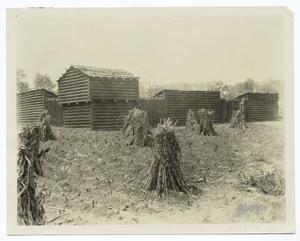
"There's an old poster out West, I recall, that says, 'Wanted: Dead or Alive."
-President G. W. Bush, Sept. 17, 2001
A couple of weeks ago the New York Times ran an opinion column by Frank Rich, Who Killed the Disneyland Dream?, referring to a now famous home movie of a family's visit to Disneyland in 1956, Robbins Barstow's Disneyland Dream.
I was fascinated to see that the family put on homemade "Davy Crockett" jackets for their visit, with the boys reserving their coonskin caps for wear only in the holy-of-holies that was Frontierland.
R. loves to tell the story of how she made a trip to Disneyland happen with a fervent wish. Her father was a buyer of mens' & boys' clothing for Maas Brothers department store in St. Petersburg. Ron had his own story about Davy Crockett, how he took a gamble on a large order of coonskin caps, put them in a display with a recording of The Ballad of Davy Crockett playing non-stop, and they flew out the doors.
My family never went to Disneyland, but we had our own Western attraction near Ocala, Six Gun Territory, which was very much like Frontierland. My friends and I loved to go there.
Lostparks.com has a virtual tour of the old attraction, and Florida Memory has a tour on film.
I've been reading Historical Reenactors and the "PERIOD RUSH": The Cultural Anthropology of Period Cultures by Karol Chandler-Ezell. She describes her work among three parallel cultures or paracultures, "tightly knit groups such as historical reenacting which make their hobbies intense, shared 'cultures' that saturate much of their daily life and self-identity while operating parallel to mainstream life." There are sections on The Society for Creative Anachronism, Renaissance Faires, and Civil War reenactors.
I bought the book because it had the term "period rush" in the title. I first came across period rush in the book Confederates in the Attic: Dispatches from the Unfinished Civil War by Tony Horwitz, (1998). Horwitz describes the extremes reenactors go to in pursuing this trance-like state in which they feel transported to another time. Says Chandler-Ezell,
Reenactors are about participant observation and cooperative play. ...reenactors were really attempting to participant observe or 'method-act' their way into the emic (insider) perspective. ...The period rush seems to be a type of transcendent experience where the reenactors loosen the stresses or constraints of their real or daily persona and as a result gain feeling of rejuvenation, relaxation, and brotherhood.(We are in for a lot of CW reenacting in the near future, by the way. 2011 is the 150th anniversary of the beginning of the Civil War.)
Do theme parks like Frontierland and Six Gun Territory appeal to us because they offer a kind of second-hand period rush, a ritual rehearsal of the primal scenes and deeds of the pioneers?
When I remember the things my father liked to share with us, camping, hunting, gun shows, family history, (he spent many years writing two books about our family), I think that these were his way of rehearsing and passing on to us something important about who he was, and where we came from. In all the times I went hunting with him, we scarcely ever actually bagged any game. Nevertheless we must "hunt", live rough, go armed, rise before dawn, far from the cities, as our fathers did in the Alabama hills.
Here are my parents, having fun with some reenacting of their own at the Rough Riders Hotel in the Dakota Badlands in 1992:
Frank Rich, while remarking on the unalloyed whiteness of the Barstows' world, uses Disneyland Dream to draw a comparison between the economic prospects of the Barstow family in 1956 and those of today's middle class, but I don't want to go there.
It's the whiteness, White World, the world I grew up in. In the South, it's a world of families who have been here about as long as mine has been. Frontierland is a cartoon version of our lived history: the Revolution, the settlement of the Cherokee lands, the Indian wars, Daniel Boone, Davy Crockett, the Alamo, the Civil War. We were there.
It's not my world anymore, really. We get all sorts at the library and at Blessed Sacrament Church, and that's the way I like it. But White World is still there. Or worlds, there are many. In fact a black man, Rich Benjamin, recently wrote an entertaining book about them, Searching for Whitopia: An Improbable Journey to the Heart of White America.
Once in a while I stumble into my white world, as a guest at a country club or at Wakulla Lodge for Thanksgiving dinner. It's an unmistakable feeling when I am among my own kind, to know that I've passed muster without much being said. If I talk to anyone, they will probably try to work out whether the people they know with my surname are related to me. Short answer? Yes. Do I know them? Probably not.
On Thursday nights at the library the county's Adult and Community Education has an ongoing class in English for Speakers of Other Languages, (ESOL). I love to see the students come down the stairs from the classroom on the third floor before the library closes: people from around the world, learning English together and laughing with new friends. What will they make of Frontierland?
In their own way, they are pioneers of a kind, far from the lands of their birth, upsetting the natives sometimes, looking for elbow room, strangers in a strange land. They have come to America. They want to be free. Let's make room around the campfire and pass them the peace pipe.


No comments:
Post a Comment